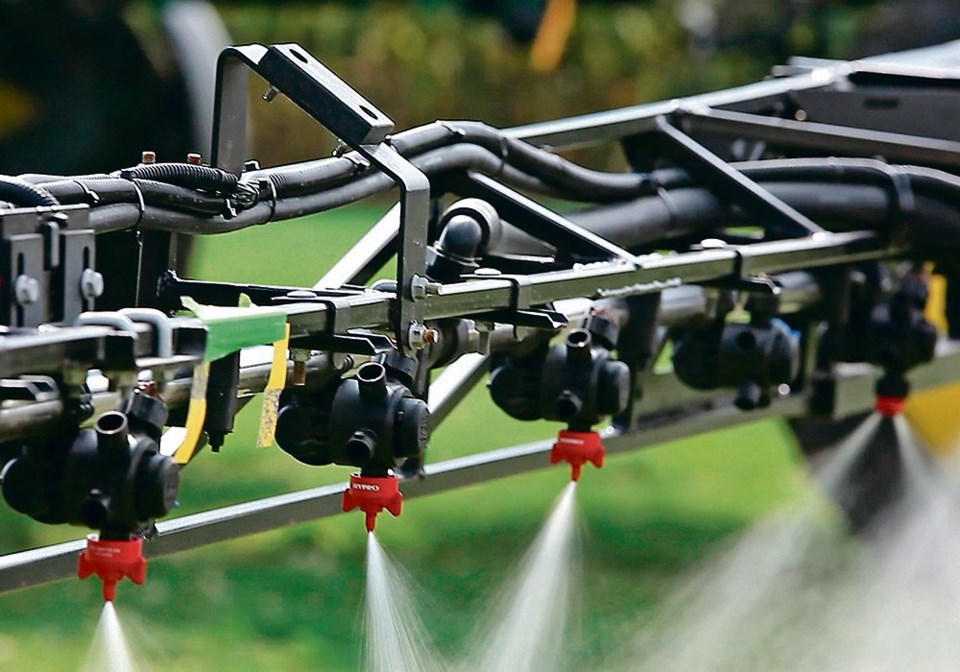WESTERN PRODUCER — BASF Canada is short on supplies of Liberty, a key herbicide used on canola and other crops, because the company doesn’t have sufficient raw materials to make the weed killer at its plant in Regina.
In particular, BASF is short on supply of one ingredient that’s part of the Liberty formulation.
“We source raw materials… from all over the world, to make and formulate Liberty in Regina,” said Mark Shillingford, director of marketing with BASF Canada Agricultural Solutions.
“The one that is the main constraint… it’s a very common product that’s used in lot of households, like shampoo, for example. We call it an inert. (It’s) one of the inert formulants that go in, that provides Liberty the characteristics that it needs.”
The Liberty shortage comes at a bad time for BASF and canola growers in Western Canada, who rely on Liberty to control weeds in InVigor canola — a herbicide-tolerant canola hybrid sold by BASF.
Canadian farmers seed more than 20 million acres of canola and in many regions In-Vigor is the most popular canola hybrid. Millions of acres and the yields of some canola fields could be affected by the shortage.
Gary Thorsteinson, who farms near Foam Lake, Sask., bought In-Vigor seed from his local ag dealer earlier this year. He seeded the crop in May, and on June 15 he received a call from his local ag retailer. The rep said they could only provide enough Liberty to spray his crop once this growing season. Thorsteinson was surprised because he was previously told that supplies would be adequate.
“We heard since last fall… (that) glufosinate (the active ingredient) may or may not be in short supply,” he said.
“Talking to reps and stuff, (they said) it’s a concern, but it’s going to be OK.”
In the middle of June, hundreds of farmers received the same news — there wasn’t enough Liberty around to supply their needs. BASF should have told growers and ag retailers weeks ago that there was a problem, Thorsteinson said.
“June 15 is way too late to decide that the supply isn’t quite there,” he said.
Shillingford said BASF made the decision to inform growers and others after the company heard from its suppliers.
“As soon as we knew from our supplier, of this one particular ingredient, that they were going to be short (product)… we immediately pulled together a communication and sent it out,” he said. “It became evident to us, last week, that we (would) end up being short of supplying the market with what we had planned.”
The BASF plant in Regina manufactures Liberty and other herbicides for the Canadian market.
Besides a shortage of the one inert ingredient, BASF has struggled to get the necessary raw materials to make crop protection productions.
“It’s safe to say that this year is unlike any other year… for most of the industry,” he said. “It’s a function of very high demand. With very constrained supply chain challenges, across the board…. We have the technical grade glufosinate active (ingredient). But there’s raw materials that come from all over.”
COVID 19, last year’s shipping blockage in the Suez Canal, transportation issues and a long list of other factors have slowed the supply chain for thousands of manufacturers, including ag chemical companies.
That may be true, but growers like Thorsteinson still need to produce a canola group in 2022 — without a sufficient supply of herbicide to control weeds.
He plans to use his on-farm supply of Liberty to make one pass over his canola. After that, he’s not sure.
“I don’t think that’s going to be enough” to preserve the yield potential, he said.
“With the moisture we got, I’m pretty confident there’s going to be another flush of weeds.”
Thorsteinson is looking into generic glufosinate, but he’s never used it before.
If growers can find a supply of generic product, they should go ahead and buy it, Shillingford said.
“Where there are alternative products that are available on the market… we recommend if they have a chance to secure this, to absolutely go ahead and protect their crop,” he said.
“Whether it’s our product or somebody else’s, we want to make sure they have the best opportunity to grow a crop.
Thorsteinson is also hoping that some Liberty will become available if growers in Alberta and other parts of Western Canada don’t need their entire supply.
“Maybe some Liberty gets freed up and can move back east (from Alberta).”
Shillingford said ag retailers are doing their best to move Liberty to where it is needed.




